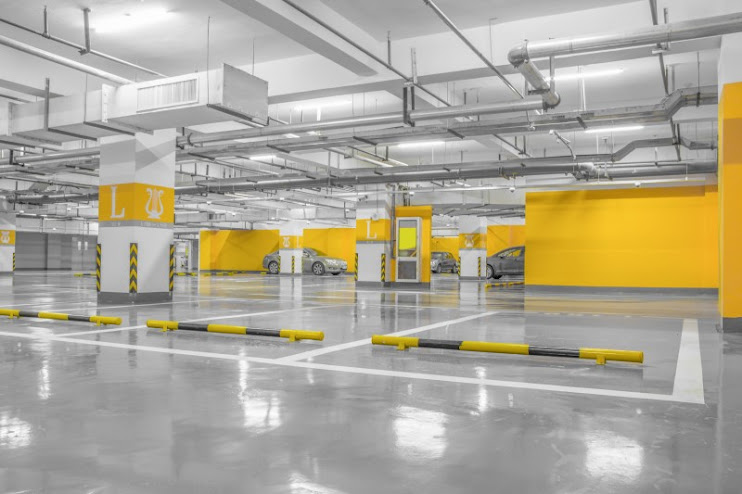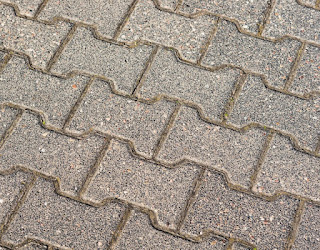NAVIGATING COMMON FACTORY FLOOR PROBLEMS: EXPLORING THEIR IMPACTS ON THE TILE INDUSTRY AND THE ROLE OF SUPRATILE
Factory floors are bustling hubs of industrial activity, serving as the foundation for countless manufacturing processes. However, these floors often encounter a range of challenges that can impact operations, safety, and aesthetics. The tile industry, in particular, has been influenced by the demands posed by common factory floor problems. In this article, we delve into these issues, their effects on the tile industry, and how Supratile has emerged as a solution to address these challenges.
The Perils of Factory Floor Problems
Factory floors are subjected to constant wear and tear due to heavy machinery, foot traffic, chemical spills, and other abrasive forces. These challenges give rise to a host of problems that can undermine both operational efficiency and worker safety.
Cracking and Chipping: High-impact machinery, heavy loads, and temperature fluctuations can lead to cracks and chips in traditional flooring materials. These imperfections not only compromise the structural integrity of the floor but also create tripping hazards and make it difficult to manoeuvre equipment.
Slip and Fall Risks: Accidents related to slips and falls are among the most common workplace injuries. Liquids, oils, and other substances often found in industrial environments can make factory floors perilously slippery. This poses a significant risk to workers and can result in injuries and legal liabilities for factory owners.
Maintenance Challenges: Traditional flooring materials are often porous, making them susceptible to staining, absorbing chemicals, and requiring frequent and intensive cleaning. These maintenance demands can disrupt productivity and increase operational costs.
Aesthetics and Brand Image: Factory floors that appear worn, stained, and unkempt can reflect poorly on the overall image of a company. Aesthetics play a role in brand perception and can influence how clients, investors, and potential employees view the business.
Implications for the Tile Industry
As factories seek solutions to these common challenges, the tile industry has been compelled to adapt and innovate. Traditional tiles, while visually appealing, often fall short when subjected to the rigors of industrial environments.
Durability and Longevity: Factory floors require materials that can withstand heavy loads, impact, and continuous use. Traditional tiles, prone to cracking and chipping, struggle to meet these demands. The tile industry has had to explore more robust materials and designs that prioritize durability without compromising aesthetics.
Safety and Slip Resistance: Slip and fall incidents are a significant concern for factory owners. The tile industry has been pushed to develop anti-slip solutions that enhance safety without sacrificing the visual appeal of tiles. These solutions often involve advanced surface treatments and textured designs.
Ease of Maintenance: Traditional tiles can be difficult to maintain in factory settings. Stains, chemicals, and grime can become embedded in porous surfaces. The tile industry has sought to create tiles with smoother, less porous surfaces that are easier to clean and maintain.
Customization and Flexibility: Factories have unique requirements, and one-size-fits-all solutions rarely suffice. The tile industry has responded by offering customization options, allowing factories to select tiles that align with their operational needs and brand identity.
Supratile: The Transformative Solution
Amid these challenges, Supratile has emerged as a transformative solution that addresses the pain points of factory floors while reinvigorating the tile industry.
Durable Interlocking Design: Supratile's interlocking design ensures that the tiles remain securely in place even under heavy loads and impact. This minimizes the risk of cracking and chipping, enhancing the lifespan of the flooring and reducing replacement costs.
Enhanced Safety: The slip-resistant surface of Supratile greatly reduces the risk of slip and fall accidents. This is achieved without compromising on the visual appeal of the tiles, ensuring that safety and aesthetics coexist seamlessly.
Low Maintenance Requirements: Supratile's non-porous surface is resistant to stains and chemical absorption. This makes cleaning and maintenance more efficient, allowing factory owners to allocate resources towards productive endeavours rather than constant upkeep.
Customizability and Branding: Supratile offers a range of colours and patterns, enabling factories to customize their flooring to match their brand identity and operational needs. This level of customization was previously challenging to achieve with traditional tiles.
Conclusion
The challenges faced by factory floors have necessitated innovation in the tile industry, and Supratile stands as a testament to this evolution. By addressing the durability, safety, maintenance, and customization concerns of factory owners, Supratile has revitalized the potential of tiles in industrial settings. As the demands of modern factories continue to evolve, the tile industry's responsiveness to these challenges ensures that flooring solutions remain aligned with the needs of a dynamic industrial landscape.




Comments
Post a Comment